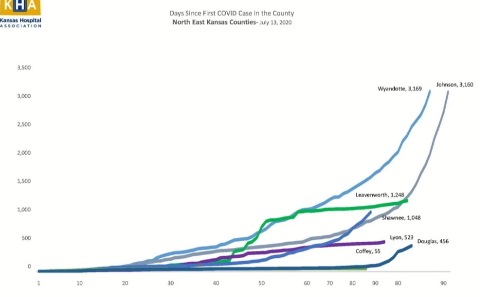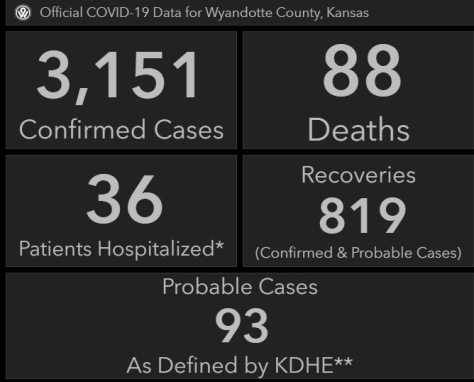Five Republicans with backgrounds in health care, nonprofits, politics and engineering are looking to take back the U.S. House seat that represents Johnson, Wyandotte counties and a slice of Miami County.
by Erica Hunzinger and Aviva Okeson-Haberman, Kansas News Service
Overland Park, Kansas — Democratic U.S. Rep. Sharice Davids took her spot in Congress from an incumbent Republican in 2018. This year, Republicans think they can take back the seat that represents Johnson, Wyandotte counties and a slice of Miami County.
She’ll go up against one of five Republican candidates, all of whom come with strong business, leadership or political ties — or all three. The Kansas News Service interviewed them at length to understand where they stand on several topics, as well as their reasons for getting into the race for the 3rd Congressional District seat.
Journalists also wanted to know how they plan to take on Davids in a district she flipped by nine percentage points in 2018. The candidates for the Aug. 4 primary are listed in alphabetical order.
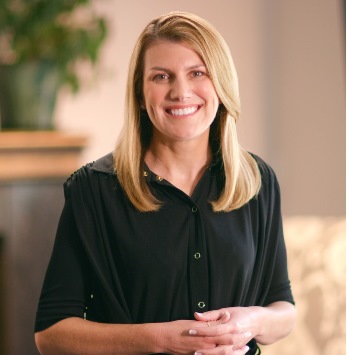
Amanda Adkins
Age: 45
Place of residence: Overland Park
Past experience: Vice president of strategic growth at Cerner Corp. (2019-2020), vice president of population health at Cerner (2008-2019), director of government and industry at Cerner (2004-2008); state Republican chairwoman (2009-2013), chairwoman of Kansas Children’s Cabinet (2011-2018)
Major endorsements: Associated General Contractors of America, Susan Pompeo, Missouri U.S. Sen. Roy Blunt and U.S. Rep. Sam Graves
Campaign website: amandaadkins2020.com
Suburban women: Adkins believes this voting bloc is concerned with two things: the economy and “the desire to have hope for the future of their children” (she has two of her own). She said when she talks to women, they “want you to understand their problems related to those areas … (that) you share their values and that you’re a problem solver.”
Health care: Adkins said one of the main weaknesses in the nation’s health care system is “how we finance care,” and she would like to put that into the hands of “the individual and the family directly.” She would do that with account-based plans, like health savings accounts.
The other weakness in health care, Adkins said, is “how we actually manage and deliver care.” During her time at Cerner, she learned that “people seek to have a meaningful direct relationship with providers in their community … there’s something that’s very personal about it.” She pointed to provider-sponsored plans as a way to change delivery of care. Adkins also is interested in a health care system that provides “complete transparency in terms of the overall cost of procedures of medications, visits,” as well as “a holistic experience and excellent care coordination” — adding, “and that’s particularly going to be true for programs like Medicaid that largely are focused on pregnant women, children.”
Coronavirus: She thought it was a good idea for the federal government to provide direct payments to individuals and small businesses as a “very, very near-term bridge,” but cautioned the “need to be thoughtful about overall expense.” Adkins advocated for getting the economy up and running as soon as possible, or at least “as soon as medical professionals say” businesses are able.
Federal debt: Adkins said she understands “what it means to be an entrepreneur” and to “build and sustain and play a contributing role in the economy.” She would like to see an annual discussion in Congress about federal spending overall to see what’s coming in versus where there are deficits. “It would be healthy and good for the American people, which would be a concrete step that is not the case today,” she said.
She also noted that the Congressional Budget Office recently projected the debt-to-gross domestic product ratio will eventually be higher than in World War II (the report was issued before the COVID-19 outbreak). “So what happens to our kids in an environment like that?” she asked. “There is just no way possible that they will have the future that we want them to have.”
Immigration: She wants to see physical barriers in rural and urban areas where it’s easy for someone to cross the Mexico border in the United States, as well as the use of surveillance so that “border control agents have an opportunity to have a much more expansive view of what’s going on.” Adkins also emphasizes looking at what skills the United States needs from its workers and how the country might be able to train immigrants in those skills.
She added that immigration is an area where she’d want to home in on spending, saying: “the amount of money that they’re feeding into the tax system is far, far lower than what our country is spending overall (on them) in terms of health care, education and social services.” (It’s important to note that undocumented immigrants are not able to sign up for federal benefits like food aid, Medicaid and TANF, though there are exceptions.)
Why she should take on Davids: People in the 3rd Congressional District have told Adkins “they don’t hear from (Davids) very much at all.” Adkins added that “for a district that is very entrepreneurial and full of lots of people who are thinkers, I think that they have a higher expectation.” Adkins also emphasized her political experience, which does not involve holding office, but getting people into office. She was the chairwoman of the GOP state party from 2009-2013, a time during which Republicans won “all of the congressional races, all of the statewide races,” and more seats in the Statehouse.
What sets her apart from the other candidates: Aside from her time as the GOP party chair and starting up the Dwight D. Eisenhower Excellence in Public Service Series, which helps women into politics, she has youth volunteers working with her campaign because she was helped along the way in her career. “We need for them to be prepared and they’re going to be more prepared if we actually take the time to have an interest and invest in them,” she said.
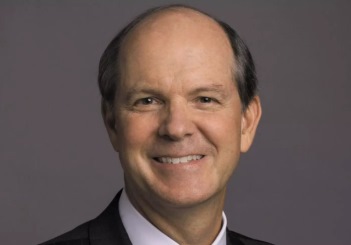
Mike Beehler
Age: 60
Place of residence: Leawood
Past experience: Retired; vice president of Burns & McDonnell (1995-2019), project engineer in Hawaii (1993-1995), transmission engineer in Arizona (1981-1991)
Major endorsements: He said he has not sought any, and “probably will not.”
Campaign website: electmikebeehler.com
Suburban women: The strong U.S. economy — at least, what it was before the pandemic — will be the key to the suburban women’s vote, Beehler said. “It’s been good for my family, it’s been good for my loved ones,” he said of women’s likely thought process, “and it’s good for our future.” He also believes that Republicans will be “demonized” by Democrats during the campaign season, “and I think people, I think the suburban housewives, are going to be tired of that.”
Health care: Beehler tied changing health care to a booming economy, saying that will provide people “the choices that we need in hospitals, the choices for doctors, the choices for insurance plans. He said the general election will be “very challenging for whoever the winner of this Republican primary is” because he believes Davids will take up the mantle of socialism.
Coronavirus: Beehler said that at the beginning of the pandemic in the U.S., people he was calling to talk with were more concerned about their safety than the election. But in the long-term, he said, the main question is “how are we going to get people back to work? How are we going to get bars and restaurants and major league sports back where we can go and resume our normal life or whatever that new paradigm might look like.” (His answer: “A big investment in infrastructure.”) Beehler also saw a silver lining: “We may realize, ‘You know what? Relationships with people and my community are important.’”
Federal debt: He said the federal debt is going to “continue to grow and grow and grow. And there does not seem to be much interest in Washington, D.C., frankly, between either political party … in stopping that.” This is where Beehler’s main platform comes in: $1 trillion in infrastructure work, which he believes could be funded by public-private partnerships to keep the federal government from accruing too much more debt.
Immigration: Beehler is in favor of President Donald Trump’s border wall, even with the U.S. seeing its lowest number of undocumented immigrants in 15 years. “Does that mean that that’s not going to happen in the future?” he asked, noting that it hurts low-wage earners who are either U.S. residents or legal immigrants. When it comes to legal immigration, he’s high on people at universities or technical schools, saying: “if they want to stay in this country and they want to become part of this country and assimilate and become a citizen, we want them because we need their creativity. We need their intellect.”
Why he should take on Davids: Beehler’s inspiration for joining the race was the House impeachment of Trump, adding that he said Davids is “a reliable vote for impeachment in the future, even if there’s no high crime or misdemeanor.”
Beehler, like Davids, played up his lack of political experience (he did run unsuccessfully for Senate in Arizona in the 1990s). “It’s a lot of these experienced politicians that have caused a lot of the challenges and a lot of the problems that we have in our country right now,” he said.
What sets him apart from the other candidates: His decades of experience in engineering are coming to bear on two ideas. His infrastructure plan he believes would benefit businesses in the 3rd Congressional District, like Black and Veatch, Garmin and JE Dunn Construction (and ripple outward into other community businesses). Beehler also said Kansas can capitalize on “clean, renewable energy” and that the Green New Deal, while not feasible to put in place by 2030, provides some opportunity for his infrastructure push in the form of buildings that use no more energy than they produce.
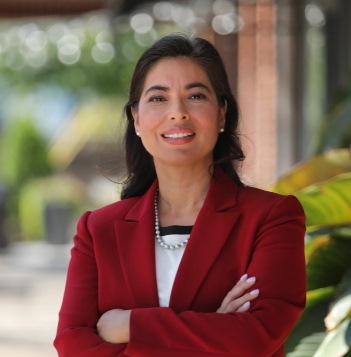
Adrienne Vallejo Foster
Age: 47
Place of residence: Roeland Park
Past experience: Region 7 Advocate for U.S. Small Business Administration (appointed by President Donald Trump); executive director of Kansas’ Hispanic and Latino American Affairs Commission (during Gov. Sam Brownback’s administration); mayor of Roeland Park (2009-2013).
Major endorsements: Former Kansas U.S. Rep. Todd Tiahrt, state Rep. Jene Vickrey, National Republicans Congressional Committee Young Guns “On the Radar” list
Campaign website: adrienneforkansas.com
Suburban women: “The suburban women are definitely a challenge for anyone. But they did like Sharice Davids — the Republican, Anglo soccer mom, suburban mom really liked the fact that Sharice was a woman, that she was American Indian and she wasn’t the regular Republican, and they liked that diversity.” She also said suburban women understand her, because she’s a mother of five who’s driven her sons around to soccer games for years. “They love the fact that I’m qualified, that I’m the only one that’s ever been elected that’s running in this race. And that I can sit down with them and be myself and I can sit in jeans and I can sit in a dress.”
Health care: Foster said changing the health care system starts with “personal responsibility” and that the current structure allows “the employers to be the customers to the health insurance companies.”
She also points to legislation Texas GOP Sen. Ted Cruz introduced in December to expand health savings accounts, as well as what was implemented in Indiana a few years ago. “If you went out into the market and got your own plan, you’re now not tied to that employer’s plan,” she said. “You have now empowered and taken into your own hands the personal responsibility for your health care needs.”
Coronavirus: Foster criticized Gov. Laura Kelly’s executive order limiting church services to 10 or fewer people as targeting religious freedoms. “(It is) vital that we take social distancing seriously, but with that we face challenges.”
She also emphasizes the effects of unemployment and the closing of small businesses, even doing a Facebook video that walked people through the Small Business Administration’s Paycheck Protection Program loan applications.
Federal debt: Foster was running for mayor when the recession began and, “like many of my residents,” had been laid off. “So a month before the election, I was able to walk and talk and say ‘I’m with you. I hear you. I’m in the same boat.’” She said it was “very challenging” to make sure the city of about 6,700 didn’t have to cut services.
“We are in a crisis for each new individual who is born,” she said of the federal financial situation. “There is an incredible amount of debt that they are inheriting. And I want to be part of the change in Congress where we actually pay and live within our means.”
Immigration: She wants immigration that is legal, “fair and humane,” where the “door is defined, and I think the president has been doing that.” Wyandotte County has a significant Latino population. Without providing specific details, Foster said people saw the effects of undocumented immigration during the Obama administration — “seeing that their kids and their grandchildren were going to school with kids who were negotiating phone bills at fourth and fifth grade because their parents couldn’t communicate. And they saw the hardship that was having on those children who were stressed out about bills at fourth and fifth grade and how unfair that was. They didn’t even want to know how or why they were coming over, they just know that there was a problem.”
Why she should take on Davids: Foster comes from a family of, as she puts it, “JFK Democrats” in Wyandotte County, where she said people “don’t like their options” and “know what socialism is.”
What sets her apart from the other candidates: She is the only woman of color in the GOP primary and an “original ‘Dotte” (that is, from Wyandotte County). Her grandparents moved from Mexico to Horton, Kansas, to work on the railroad. She is “the youngest of 12. The first to go to college, grew up at 912 Riverview off 10th Street (in Kansas City, Kansas). And it was a challenge. I didn’t know that I was poor,” she said. “I really didn’t, because my parents gave us wonderful family values.”
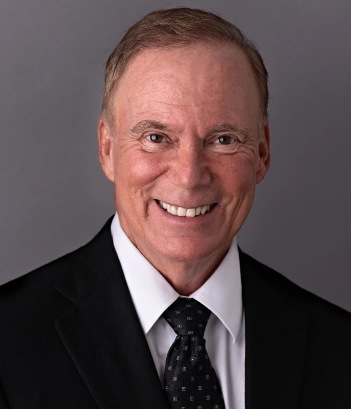
Tom Love
Age: 67
Place of residence: Overland Park
Past experience: Former state representative (1991-1992)
Major endorsements: n/a
Suburban women: Love says his focus on education will appeal to this voting bloc. He wants federal student loans to be interest-free and wants literacy labs in public schools.
Health care: Overall, Love doesn’t “like the idea of the government running the show.” However, he said he supports some change, like getting rid of punitive damage awards in medical malpractice cases to keep it “targeted to the actual damages.” He also wants to see the Food and Drug Administration forbid the use of ammonia in making cigarettes.
Coronavirus: Love praised Trump’s executive order in late January that stopped travelers who recently visited China from coming into the U.S. (the order didn’t apply to U.S. residents, spouses or family members). But Love also said the federal government made a “big mistake” in not ramping up testing sooner.
Federal debt: Love said the first priority should be getting people back to work, and then once the federal government has “more people employed and more income coming in,” lawmakers can work on addressing the debt. He also supports a flat tax, which he thinks will help boost the economy.
Immigration: Love supports a “comprehensive plan to stop people just walking across the border” that includes building a wall.
“We don’t want to bring criminals in,” Love said. “We want to bring people who want to live under our laws and our constitution and help strengthen the country.”
Why he should take on Davids: Love says his previous experience as a state representative gives him the upper hand when it comes to crafting bills.
“I’m kind of like Trump in that I’m a rehab guy and I look at something and I go … how can we take that back to what it used to be? Because it’s a lot of potential there and there’s solutions sometimes it just means going back to previous law,” Love said.
What sets him apart from other candidates: Love said he’s focused on legislation that affects people’s day-to-day life, which doesn’t always get the same attention as immigration, abortion or gun rights. For example, Love wants to focus on literacy rates and changing the high-interest rate credit card companies set.
“If we can get them to target their K through second grade … Title I funds to provide world-class literacy labs, I think we can eliminate illiteracy in the lower-income population and really make a dramatic difference in our lives,” Love said.
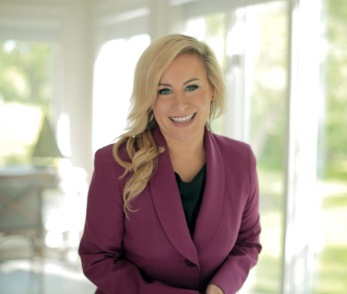
Sara Hart Weir
Age: 38
Place of residence: Mission
Past experience: President and CEO of National Down Syndrome Society (2014-2019) and NDSS vice president (2012-2014)
Major endorsements: ViewPAC, Maggie’s List, former Kansas U.S. Reps. Lynn Jenkins and Cathy McMorris Rodgers, National Republicans Congressional Committee Young Guns “On the Radar” list
Campaign website: saraforkansas.com
Suburban women: “The suburban mom, the woman vote that we need to get back to the Republican Party is really a larger metaphor for women who want to see Congress work … together and actually get things done,” Weir said.
The other women candidates talk a lot about their families. Weir is not married, but she is a co-guardian for a family friend with down syndrome. “There’s families in all forms, shapes and sizes. But for me, being a Republican is about leading with heart and having compassion in what we do,” she said. “And I do think the Republican Party is diverse and inclusive, and it’s one of the reasons I’m running. We need more Republican women to step out and lead and lead differently.”
Health care: Weir comes at health care from two sides. She said she had 20-25 employees at the NDSS: “I was really focused on making sure that we provided the best benefits and services, 401ks, IRAs, health care plans for my team because I needed them to be healthy.”
But her work with people with Down syndrome has led her to believe “it’s time to decouple the poor from the disabled and these means-tested programs and actually really solve the problem and create a health care system that helps that end user. … Right now, we try to lump everybody into the same category and we know that’s not working.” Without providing specifics, Weir said Congress should try to make sure the cost of health care delivery and insurance are transparent, because “people don’t know how much things cost.”
Coronavirus: Weir frequently posts about COVID-19 on her social media pages, especially the need for social distancing, state-level information about closures and help for businesses and thank you cards for health care workers. She also criticized Davids and, more generally, House Democrats when Congress was debating $2 trillion in federal aid. “Right now, because of these partisan politics and these silly liberal pet projects, we are watching centuries of family businesses, decades of entrepreneurship just wither away,” she said on March 24.
Federal debt: “We need to get back to a regular routine budget process, through the appropriations process. You know, for the last well over a decade, our appropriators and our leaders keep passing continuing resolution after continuing resolution, which adds to more waste, fraud and abuse in our system,” she said. “There’s no accountability.”
Immigration: Weir tells the story of how her grandparents immigrated from Italy and ended up in Omaha, Nebraska. But when it comes to the more contentious aspects of immigration these days, Weir said she’s been to the border in Brownsville, Texas, to see “how our border’s not secure … I support that every sovereign country has the right and the responsibility to protect its borders.” To do that, she said, the U.S. needs “adequate resources and technology.”
“People don’t want to leave this country. They want to come here. We have a million people backlogged in our immigration system. …. We need to sit down and get parties working together to address the issues related to immigration and we need to prevent people from coming to our borders,” she said.
Why she should take on Davids: “I’m a political outsider. I’m a CEO and I have a track record of getting things done for those that I serve,” she said. “And I’m hoping to continue that path and my track record of getting things done into serving the entire third district here in Kansas.”
What sets her apart from the other candidates: Weir was a leading advocate for the federal ABLE Act, which aimed to create private savings accounts for people with disabilities to use for things like education and health and wellness issues. President Barack Obama signed it into law in December 2014.
Editor’s note: This story was originally written in April and was updated on July 13 with information about the fifth candidate, who entered the race on the last day candidates could file.
Correction: A previous version of this story incorrectly identified an endorsement for Sara Hart Weir, who has one from Maggie’s List.
Erica Hunzinger is the news editor of the Kansas News Service. You can follow her on Twitter @ehunzinger or email her at erica (at) kcur (dot) org. Aviva Okeson-Haberman is a political reporter at KCUR. You can follow her on Twitter @avivaokeson or email her at aviva (at) kcur (dot) org.
The Kansas News Service is a collaboration of KCUR, Kansas Public Radio, KMUW and High Plains Public Radio focused on health, the social determinants of health and their connection to public policy. Kansas News Service stories and photos may be republished by news media at no cost with proper attribution and a link to ksnewsservice.org.
See more at https://www.kcur.org/politics-elections-and-government/2020-04-20/meet-the-five-republicans-looking-to-unseat-u-s-rep-sharice-davids-in-november

